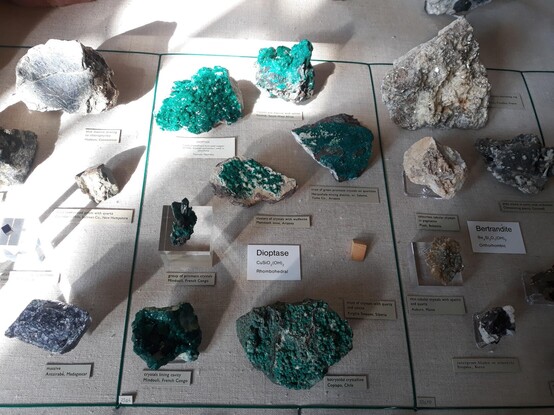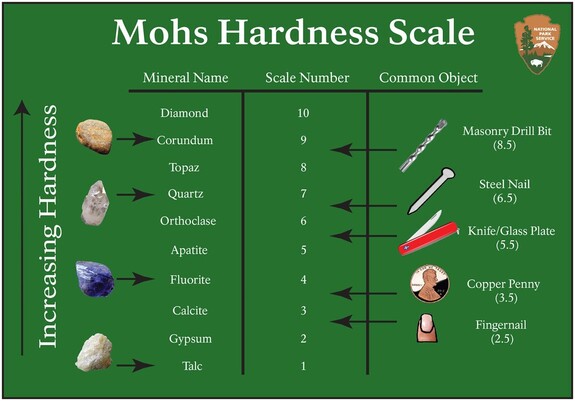Evan Centanni (PolGeoNow) · @polgeonow
54 followers · 107 posts · Server mstdn.socialThe name "#India" was already used by the Ancient Greeks more than 2000 years ago, though some in the region associate it more now with the #UK's colonial subjugation of the country in the 1700s-1900s.
#geography #toponymy #namechange #Bharat #placenames #etymology @geography
#etymology #placenames #bharat #NameChange #toponymy #geography #UK #India
Evan Centanni (PolGeoNow) · @polgeonow
54 followers · 106 posts · Server mstdn.social#India made waves at the #G20 summit it hosted this weekend by using "#Bharat" instead of "India" as its country name in some English-language contexts. https://www.reuters.com/world/india/modi-uses-bharat-g20-nameplate-not-india-amid-name-change-row-2023-09-09/
"Bharat" is already India's name in most local languages, including Hindi, and is mentioned as a synonym of "India" in the English version of the country's constitution, but hasn't been used in formal international contexts until now.
#geography #toponymy #namechange #Bharat #placenames #etymology @geography
#etymology #placenames #NameChange #toponymy #geography #bharat #g20 #India
Jeremy Mallin · @JeremyMallin
214 followers · 2697 posts · Server autistics.lifeWhenever I'm looking up the #etymology of a Yiddish word and it comes from high German, I can't help but wonder at how many words come from high German. Those German's must have really loved their drugs. 🤪 😆
rainey 🌻 · @raineyday
146 followers · 1793 posts · Server mstdn.gamesI wouldn't worry so much about the "oops". That's the joy of discovery :)
Also, what do involuntary muscle twitches have to do with authoritarian regimes? The answer may surprise you!
sarfeo · @sarfeo
46 followers · 248 posts · Server toad.socialLAT: humus (earth) ° humilis (shallow, humble)
Old Spanish (Ladino): ombre
DE: Bräutigam (bridegroom)
EN: gome (obsolete, "human") ° humble ° humiliate ° homage
We could connect the people of the world via shared stories. Words convey some of them.
*word
"Why did people back then suddenly begin to seriously invest in linguistics?!" ;)
sarfeo · @sarfeo
46 followers · 247 posts · Server toad.social#etymology descendants for the PIE root dʰéǵʰōm "earth / human"
https://en.m.wiktionary.org/wiki/Reconstruction:Proto-Indo-European/d%CA%B0%C3%A9%C7%B5%CA%B0%C5%8Dm
Daniel · @schoudaan
61 followers · 401 posts · Server autistics.lifeNausea is nautical. The word "nausea" is derived from the Greek word "naus", which means ship. It originally referred to seasickness. The meaning was broadened to include all instances of the symptoms of seasickness, regardless of the cause.
#language #etymology #languagechange
Pete Rijks · @prijks
109 followers · 358 posts · Server fedi.esgeroth.org#English stole some near-synonyms for “ask”: “question” from French and “interrogate” from Latin.
So I wondered if prior to “question” there existed an Old English noun form of “ask” and what if people using “ask” as a noun in corporate jargon are actually just being old-fashioned?
So I found that the Old English noun form of “ask” is actually “ascung” so now the next time you hear someone use “ask” as a noun, make sure to let them know “actually, the noun form of ask is ascung.”
James Truitt (he/him) · @linguistory
39 followers · 383 posts · Server code4lib.socialHad the sudden and startling realization on Monday that "pardon" *literally* means "forgive" #Etymology
michael fulgenzi · @serpicojam
160 followers · 1747 posts · Server mas.toNadine, Hunter of Rocks 💎 · @NadWGab
567 followers · 88 posts · Server mas.toToday's #MinCup23 contenders on display in the NHM London. The origins of their names allude to their physical properties:
- Dioptase is from the Greek words διά (dia) and όπτομαι (optomai) which mean "through" and "visible", in reference to its visible internal cleavage
- Crocoite is from the Greek word κρόκος (krókos), which means "saffron". Both the mineral and the spice share the same vibrant colour
Vote for your favourite: https://www.mineralcup.org/2023/campaigns/round-1-match-5
#etymology #mineral #minerals #geology #mincup23
Grammargeddon Angel · @GramrgednAngel
578 followers · 4256 posts · Server zirk.usReminder: Most folk etymology is false. The stories are enjoyable, and the logic makes sense (usually), but actual etymology is seldom so convenient or entertaining to the general reader.
However, "sabotage" actually is related to "sabots," the shoes worn by French peasants, from the French *saboter," to kick with sabots, to purposefully destroy.
Check Merriam-Webster and OED, and you'll see. The word dates to the early 1900s.
#etymology #workersunite #unionstrong
Daniel · @schoudaan
61 followers · 396 posts · Server autistics.lifeThe pronoun "you" used to refer to multiple people only. It was used for singular persons as a sign of respect, and eventually replaced the original singular pronoun "thou" in most varieties of English. Now words like "y'all" have arisen to remove the resulting ambiguity.
Amusingly, standard Dutch has gone through this same process and come out the other side.
#etymology #language #languagechange
Tom Mazanec · @tommazanec
139 followers · 84 posts · Server zirk.us@ccount These back-formations from Japanese phonetic renderings are so interesting!
The area I'm currently living in, Wanhua 萬華, is named bc the Jp pronunciation (Banka) was close to the Hokkien of 艋舺 (Báng-kah), the original name, itself likely from an indigenous word meaning 'canoe'.
#etymology #Taiwanese #japanese #chinese
Nadine, Hunter of Rocks 💎 · @NadWGab
554 followers · 59 posts · Server mas.toA fact for the #etymology nerds! The word quartz describes one of its physical properties. It comes from the German word "Quarz" which has origins in various Slavic words for "hard" (e.g., Czech "tvrdý", Polish "twardy", Serbian/Croatian "tvrd"). Quartz is a pretty hard mineral as it's 7 on the Mohs hardness scale
#teamquartz #mincup23 #minerals #mineral #etymology
Sean Murthy · @smurthys
228 followers · 2926 posts · Server hachyderm.ioIn another episode of "am not making this up" where we look at the origin of the F word:
#fword #origin #etymology #english
Jérémy Garniaux · @jeremy
1863 followers · 2408 posts · Server mapstodon.spaceThe "&" logogram, called esperluette in french - & which I'm quite fond of - is called ampersand in english.
Its etymology is at least as poetic as the sign itself: ampersand means "and, per se, and".
Both its french and english Wikipedia pages are worth reading if you enjoy diving into the history of typography (caution, rabbit's hole):
https://en.wikipedia.org/wiki/Ampersand
https://fr.wikipedia.org/wiki/Esperluette
The attached image comes from the WP page. Ain't it beautiful?
#til #etymology #words #logograms
Strong Language · @stronglang
568 followers · 70 posts · Server lingo.lolWe're on Bluesky now: @stronglang.bsky.social. Which means @sesquiotic is thinking about the seedier senses of the word "skeet":
https://stronglang.wordpress.com/2023/08/29/yeet-that-skeet-into-the-blue-sky/ #slang #etymology #Bluesky
celery · @celrydoor
38 followers · 444 posts · Server lingo.lolWhat did Poe mean when he described Ligeia's hair as "hyacinthine"? He had previously described her hair color as "raven-black", so obviously the "gold" definition doesn't fit here. But how did this word come to mean both blueish purple in non-hair contexts and gold in hair contexts??
#etymology #Poe #Ligeia
Albert Cardona · @albertcardona
2039 followers · 4058 posts · Server mathstodon.xyz“Our word ‘acre’ – related to ‘aecer’, the Old English for acorn – originally denoted an area with oak trees.” [i.e., open woodlands, more like grasses, wildflower and shrub fields with sparse trees.]
“Someone who had the right to ‘acker’ pigs – to fatten them on acorns – was called an ‘ackerman’ or, in German, ‘Ackerbürger’.”
From: “Wilding: The Return of Nature to a British Farm”, by Isabella Tree
UPDATE: it seems this isn’t accurate, may even be entirely false. See replies below.






